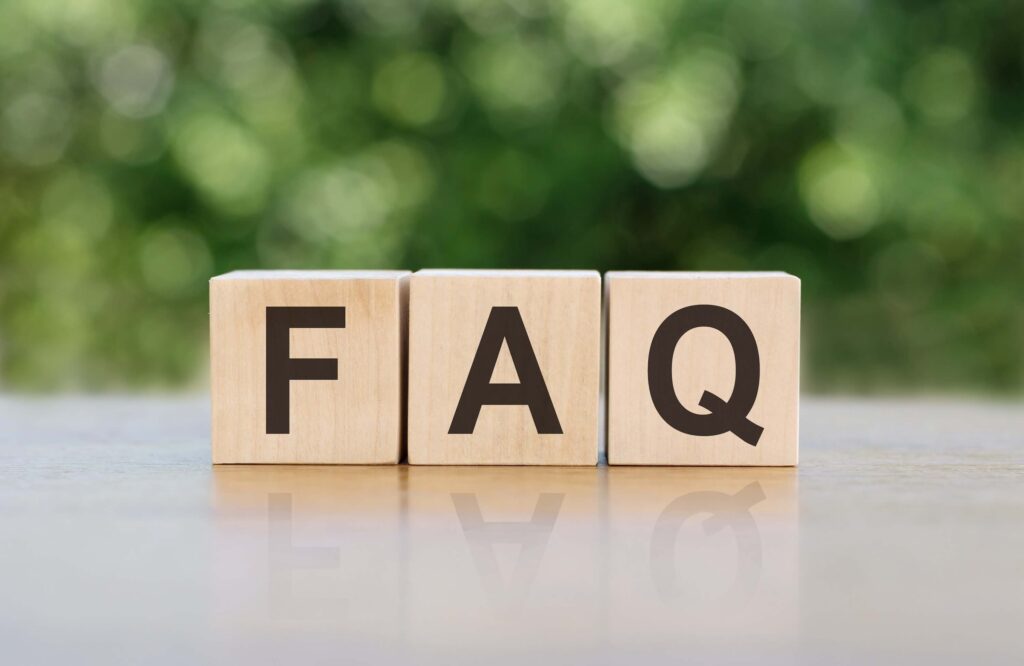
A power of attorney (POA) is a crucial legal document that grants a trusted individual the authority to make decisions on your behalf, should you become unable to do so. There are two primary types of POA: financial and healthcare.
A financial POA allows your appointed agent to manage your financial affairs, such as paying bills, managing investments, and handling property transactions. A healthcare POA empowers your agent to make medical decisions in line with your wishes and best interests.
Having a POA in place provides peace of mind, ensuring that your affairs are managed according to your preferences and relieving your loved ones of difficult decision-making burdens during stressful times.
Choosing Morella Bencsics for your power of attorney needs ensures that you receive personalized, expert legal guidance tailored to your situation. Contact us today to schedule a consultation and take the first step towards securing your future with a comprehensive power of attorney.
Morella Bencsics’ Approach to Tailoring Power of Attorney Documents to Individual Needs
At Morella Bencsics, we understand that every client’s situation is unique. Our approach to creating power of attorney documents is highly personalized, taking into account your needs, preferences, and circumstances.
We work closely with you to understand your wishes and ensure that the POA documents reflect your intentions accurately. Our goal is to provide you with a sense of security and confidence, knowing that your affairs will be managed by someone you trust.
Explanation of Different Types of Power of Attorney Documents Offered
We offer a variety of power of attorney documents to suit different needs:
- Durable Power of Attorney: Remains in effect even if you become incapacitated, ensuring continuous management of your affairs
- Limited Power of Attorney: Grants specific powers to your agent for a limited period or particular tasks, such as selling a property
- General Power of Attorney: Provides broad authority to your agent to handle a wide range of financial and legal matters
- Healthcare Power of Attorney: Allows your agent to make medical decisions on your behalf, ensuring your healthcare preferences are honored
Steps Involved in Creating a Power of Attorney with Morella Bencsics
Creating a power of attorney with Morella Bencsics is a straightforward process designed to provide clarity and peace of mind:
- Initial Consultation: Schedule a meeting with one of our experienced attorneys to discuss your needs and objectives. We will explain the different types of POA documents and help you determine which is most suitable for your situation.
- Drafting the Document: Based on your input, we will draft a customized POA document that accurately reflects your wishes and grants the appropriate powers to your chosen agent.
- Review and Revise: We will review the draft with you, making any necessary revisions to ensure the document meets your expectations and legal requirements.
- Execution: Once finalized, we will guide you through the proper execution of the POA document, including witnessing and notarization, to ensure its validity.
- Ongoing Support: We provide ongoing support and advice, helping you update or revoke your POA as your circumstances change.

Responsibilities and Limitations of a Power of Attorney
While a POA can provide significant benefits by ensuring that the principal’s affairs are managed according to their wishes, it also comes with responsibilities and limitations that both the principal and the agent should understand.
Responsibilities of a Power of Attorney
- Acting in the Principal’s Best Interest: The agent is legally obligated to act in the best interest of the principal. This fiduciary duty requires the agent to make decisions that benefit the principal, avoiding conflicts of interest and self-dealing.
- Managing Financial Affairs: For a financial POA, the agent is responsible for managing the principal’s financial matters, which may include paying bills, managing bank accounts, filing taxes, and handling investments. The agent must keep accurate records of all transactions and provide periodic accountings if required.
- Making Healthcare Decisions: Under a healthcare POA, the agent is authorized to make medical decisions on behalf of the principal. This includes consenting to or refusing medical treatments, accessing medical records, and arranging for medical care based on the principal’s preferences and best interests.
- Following Instructions: The agent must follow any instructions outlined in the POA document. These instructions can include limitations on the agent’s authority or detailed guidance on how certain decisions should be made.
- Maintaining Confidentiality: The agent must maintain the confidentiality of the principal’s private information and only disclose it when necessary to carry out their duties.
Limitations of a Power of Attorney
- Scope of Authority: The authority granted to the agent is limited to the powers explicitly stated in the POA document. The agent cannot act beyond these specified powers. For example, a limited POA may only grant authority for a specific transaction, such as selling a property.
- Duration of Authority: The duration of the agent’s authority may be limited by the terms of the POA. A POA can be designed to be durable, remaining in effect even if the principal becomes incapacitated, or it can be non-durable, terminating upon the principal’s incapacity.
- Revocation by the Principal: The principal retains the right to revoke the POA at any time, as long as they’re mentally competent. The revocation must be communicated to the agent and any third parties who may rely on the POA.
- Legal and Ethical Boundaries: The agent must act within the bounds of the law and ethical guidelines. They cannot engage in illegal activities or make decisions that violate the principal’s legal rights.
- No Authority After Death: The authority granted under a POA terminates upon the death of the principal. After the principal’s death, the executor or personal representative named in the will takes over the management of the estate.
- Personal Interests: The agent cannot use their authority to benefit themselves at the expense of the principal. Any actions that result in personal gain for the agent, other than reasonable compensation for their services, are generally prohibited.
A power of attorney is a valuable tool for managing the principal’s affairs, but it comes with significant responsibilities and limitations. Understanding these responsibilities and limitations is crucial for both the principal and the agent to ensure that the POA is used appropriately and effectively. At Morella Bencsics, we provide expert guidance in creating and managing POA documents, ensuring that all parties are fully informed and protected.

Common Misconceptions About Power of Attorney
Several common misconceptions about POA can lead to misunderstandings and potential issues. Clarifying these misconceptions is crucial for both principals and agents to ensure that POA documents are used correctly and effectively. Here are some of the most prevalent misconceptions:
A Power of Attorney Grants Unlimited Authority
One of the most common misconceptions is that a POA grants the agent unlimited authority over the principal’s affairs. In reality, the scope of the agent’s authority is strictly defined by the terms outlined in the POA document. The principal can limit the agent’s powers to specific tasks or areas, such as managing finances or making healthcare decisions.
A Power of Attorney Remains in Effect After the Principal’s Death
Many people mistakenly believe that a POA continues to be valid after the principal’s death. However, a POA automatically terminates upon the principal’s death. At that point, the responsibility for managing the principal’s affairs typically passes to the executor or personal representative named in the will.
An Agent Can Make Decisions Without Consulting the Principal
Another misconception is that an agent can make decisions independently without consulting the principal. While the agent has the authority to act on behalf of the principal, they’re still obligated to act in the principal’s best interest and, whenever possible, consult with the principal to understand their preferences and wishes.
A Power of Attorney Is Only for the Elderly or Ill
Many people assume that POA documents are only necessary for the elderly or those with serious health conditions. In reality, a POA can be beneficial for anyone, regardless of age or health status. It provides a safeguard in case of unexpected events, such as accidents or temporary incapacitation, ensuring that someone trusted can manage your affairs.
Creating a Power of Attorney Means Losing Control
Some individuals fear that creating a POA means they will lose control over their affairs. However, a POA can be tailored to grant limited authority to the agent and can include specific instructions on how decisions should be made. Additionally, the principal retains the right to revoke the POA at any time, as long as they’re mentally competent.
A Power of Attorney Is Irrevocable
Contrary to the belief that a POA is irrevocable, the principal can revoke a POA at any time, provided they’re mentally competent. Revocation must be communicated to the agent and any third parties who may rely on the POA to ensure it’s no longer in effect.
One Power of Attorney Document Covers Everything
There is a misconception that a single POA document can cover all aspects of the principal’s affairs. In practice, there are different types of POA documents for different purposes. For example, a financial POA grants authority over financial matters, while a healthcare POA grants authority over medical decisions. It’s important to create the appropriate POA documents to address specific needs.
An Agent Can Change the Principal’s Will
An agent under a POA does not have the authority to alter the principal’s will or make decisions about the distribution of the principal’s estate after death. The agent’s powers are limited to managing the principal’s affairs during their lifetime, as specified in the POA document.
A Power of Attorney Is Effective Immediately
While some POA documents are effective immediately upon signing, others, known as “springing” POAs, only become effective under certain conditions, such as the principal’s incapacitation. The principal can specify when and how the POA should take effect in the document.
DIY Power of Attorney Forms Are Sufficient
Although do-it-yourself POA forms are readily available, they may not adequately address specific legal requirements or the principal’s needs. It’s advisable to consult with an experienced attorney to ensure that the POA document is properly drafted, legally compliant, and tailored to the principal’s situation.
Understanding these common misconceptions about power of attorney is essential for making informed decisions and ensuring that the POA is used effectively. We provide expert guidance in creating and managing POA documents, helping clients navigate the complexities and avoid potential pitfalls.

Frequently Asked Questions Regarding Power of Attorney in Pittsburgh
What is a Power of Attorney (POA)?
A power of attorney is a legal document that allows you (the principal) to appoint someone you trust (the agent or attorney-in-fact) to manage your financial, legal, or healthcare affairs if you become unable to do so.
What types of POA are available?
There are several types of POA, including financial POA, healthcare POA, Durable POA (which remains in effect if you become incapacitated), and limited POA (which grants specific powers for a limited time or task).
When does a POA become effective?
A POA can be effective immediately upon signing or “springing,” becoming effective only under specified conditions, such as the principal’s incapacitation.
Can I revoke a POA?
Yes, as long as you’re mentally competent, you can revoke a POA at any time by notifying your agent and any relevant third parties in writing.
What are the responsibilities of my agent?
Your agent must act in your best interest, manage your affairs according to the terms of the POA, and keep accurate records of all transactions.
Do I need a lawyer to create a POA in Pittsburgh?
While not legally required, consulting with an experienced attorney ensures that the POA is properly drafted, complies with state laws, and addresses your specific needs.
For personalized assistance regarding creating, enforcing, or revoking a POA, contact Morella Bencsics to schedule a free, initial consultation. We are eager to utilize our experience in handling POAs specific to Pennsylvania’s power of attorney laws.

